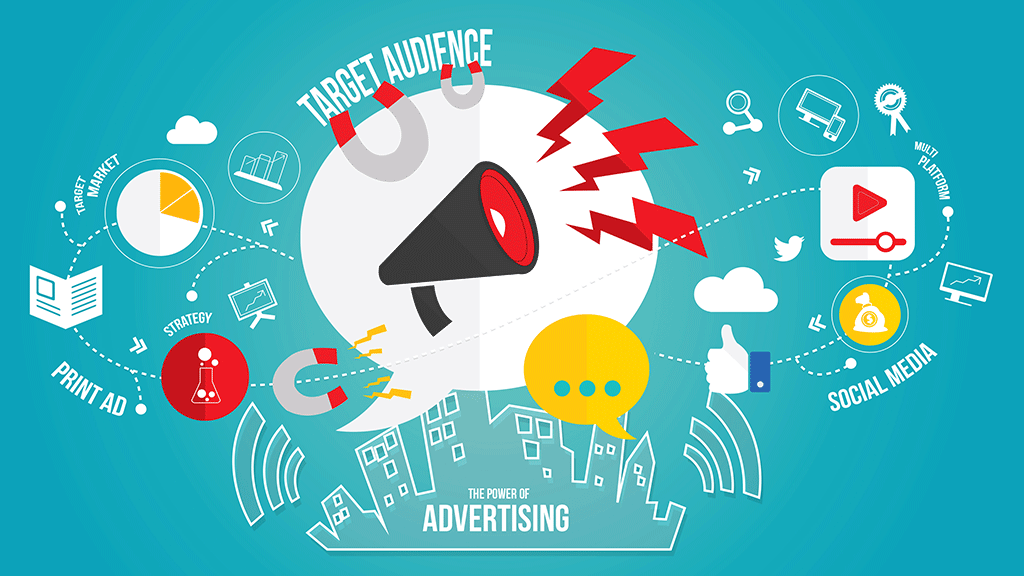“Promotional activities are the lifeblood of event success. They're the key to making your business trail experience unforgettable.“
~ Sarah Johnson
As a business owner, you must prepare and execute effective promotional strategies to succeed. In this overview, we'll explore the art of promoting your business through a range of activities, from building anticipation before an event to harnessing the reach of social media and securing collaborations for increased visibility.
Today, we're jumping headlong into the realm of pre-show marketing, where the magic of anticipation begins.
Key Takeaways
- Pre-Show Marketing: Initiating teaser campaigns, leveraging email marketing, utilizing social media platforms, creating engaging blog content, hosting webinars, engaging with influencers, organizing contests, and pre-scheduling meetings are essential components of pre-show marketing.
- Social Media Engagement: The strategic use of social media platforms involves selecting suitable platforms, sharing engaging content, encouraging user-generated content, incorporating event hashtags, and engaging with the audience through live streams.
- Advance Scheduling: Utilizing online scheduling tools, initiating outreach to prospects in advance, personalizing meeting invitations, offering flexible time slots, sending confirmations and reminders, and preparing backup plans are crucial for successful advance scheduling.
- Speaking Opportunities: Securing speaking engagements at events entails researching event programs, crafting compelling proposals, tailoring content to align with event themes, showcasing expertise, and thorough rehearsal and preparation.
- Collaborations and Sponsorships: Identifying potential partners, crafting personalized partnership proposals, negotiating terms and responsibilities, exploring event-specific sponsorship packages, and adapting strategies to different opportunities are vital for successful collaborations and sponsorships.
Event Promotion: Setting the Stage
Imagine this: You're all set to attend a major industry event, armed with your products or services and a killer booth design. But there's one problem—no one knows you're coming. That's where pre-show marketing steps in. It's your chance to set the stage, grab people's attention, and make them excited to see what you have to offer.
Your Pre-Show Marketing Toolkit
Let's break it down into actionable steps:
- Teaser Campaigns: Start early by teasing your participation. Share cryptic hints, sneak peeks, or intriguing facts about what you'll unveil at the event. Get people curious and talking about your brand.
- Email Marketing: Your email list is pure gold. Craft engaging emails that reveal your event plans, offer exclusive previews and invite subscribers to visit your booth. Personalize your messages to make recipients feel special.
- Social Media Teasers: Utilize your social media platforms to their fullest. Share visually appealing teasers, use event-related hashtags, and run countdowns. Social media is where your audience hangs out, so be sure to meet them there.
- Blog Posts and Articles: Create blog posts or articles that highlight your event goals, industry insights, or the problems your products can solve. Share these on your website and social channels to establish authority.
- Webinars or Live Streams: Hosting a pre-event webinar or live stream is a fantastic way to engage your audience. Discuss relevant topics and drop hints about your event participation.
- Engage with Influencers: Collaborate with industry influencers to amplify your message. Their endorsement can go a long way in building anticipation.
- Contests and Giveaways: Everyone loves freebies! Run contests or giveaways with event tickets or exclusive swag as prizes. Encourage sharing to expand your reach.
- Pre-Schedule Meetings: Use online tools to pre-schedule meetings with potential clients or partners. This ensures your calendar fills up fast.
- Create a Buzzword: Develop a catchy event-related buzzword or phrase that sticks in people's minds. Use it consistently in your marketing materials.
Your Pre-Show Marketing Checklist
Remember, building hype before the event is like creating a wave that carries you through the show. So, before we wrap up this section, here's a handy checklist for your pre-show marketing campaign:
- The teaser campaign is in progress.
- Email marketing strategy in place.
- Social media teasers are scheduled.
- Blog posts or articles published.
- Webinar or live stream planned.
- Influencer collaborations are underway.
- Contests and giveaways are set up.
- Meetings pre-scheduled.
- Buzzword or phrase decided upon.
Social Media: Your Promotional Playground
You're no stranger to social media, but when it comes to event promotion, it's essential to use these platforms strategically. Here's how to do it:
- Choose Your Platforms Wisely: Not all social media platforms are created equal. Focus your efforts on the ones where your target audience is most active. Whether it's Facebook, Twitter, LinkedIn, Instagram, or TikTok, tailor your content to fit the platform.
- Create Engaging Content: Visuals are king on social media. Share eye-catching images and videos of your booth setup, products, or team members preparing for the event. Make sure your content tells a story and evokes emotions.
- Share User-Generated Content: Encourage attendees to share their experiences and tag your brand. Repost their content to show that you value your community.
- Use Event Hashtags: Every event has its official hashtag. Incorporate it into your posts to join the conversation. Create a content calendar to schedule posts leading up to and during the event.
- Engage with Your Audience: Respond to comments, messages, and mentions promptly. Engaging with your audience builds trust and shows that you're genuinely interested in their thoughts.
- Go Live: Use live streaming to give your followers a behind-the-scenes look at your event preparations, booth activities, and product demonstrations. Live videos generate excitement and engagement.
Event Hashtags: The Magic Keyword
Event hashtags are like the breadcrumbs that lead your audience straight to your booth. Here's how to make the most of them:
- Research Official Hashtags: Find out what official event hashtags are being used. These are the primary tags that everyone will follow. Include them in your posts.
- Be Creative: In addition to official hashtags, create your unique event-specific tag related to your brand or booth theme. Encourage attendees to use it when posting about your booth.
- Monitor and Engage: Keep an eye on the event hashtag stream. Like, share, and comment on posts from attendees. Engaging with others in the community can expand your reach.
- Hashtag Placement: Don't go overboard with hashtags in your posts. Use a few relevant ones in your captions, and consider adding more in the comments section for cleaner aesthetics.
Your Social Media and Hashtag Checklist
Before we wrap up this section, here's a checklist to ensure you're making the most of social media and event hashtags:
- Platform selection based on the target audience.
- Engaging content calendar in place.
- User-generated content strategy established.
- Regular use of event and custom hashtags.
- Active engagement with your social media community.
- Live streaming plans set up.
The Importance of Advance Scheduling
Picture this: You're at a busy trade show, surrounded by potential clients, partners, and industry experts. Everyone's busy, and valuable opportunities could slip through your fingers if you're not prepared. That's where advanced scheduling comes in. By setting up meetings and appointments in advance, you:
- Avoid Confusion: Ensure that both you and your prospects are on the same page regarding meeting times and locations.
- Maximize Your Time: Make the most of your limited time at the event by having a structured schedule.
- Leave a Professional Impression: Show that you're organized and value your attendees' time.
Tips for Successful Advance Scheduling
- Use Online Scheduling Tools: There are various online tools available, like Calendly, Doodle, or Microsoft Outlook's scheduling feature, that allow you to share your availability and let attendees book slots that work for them.
- Start Early: Don't wait until the last minute to reach out for meetings. Begin scheduling a few weeks before the event to secure your desired slots.
- Personalize Your Invitations: When sending meeting requests, add a personal touch. Mention why you want to meet, what you hope to achieve, and how it benefits both parties.
- Be Flexible: Keep in mind that attendees also have busy schedules. Offer multiple time slots to accommodate different preferences.
- Confirm and Remind: A day or two before the event, send a confirmation email with all the details and a reminder of your meeting. It helps reduce no-shows.
- Have a Backup Plan: Sometimes, schedules can get hectic, and meetings may need to be rescheduled. Be prepared with backup time slots.
Your Advance Scheduling Checklist
- Online scheduling tool set up and customized.
- Outreach to prospects started well in advance.
- Personalized meeting invitations were sent.
- Flexible time slots are offered.
- Confirmation and reminder emails are scheduled.
- Backup time slots identified.
Speaking Opportunities: The Power of Your Voice
It's time to step into the spotlight and explore the world of speaking opportunities at trade shows and conferences. Leading workshops or seminars can be a game-changer for your promotional activities. Speaking engagements aren't just about delivering a presentation; they're a golden ticket to showcase your expertise, build credibility, and connect with your audience on a deeper level. Here's why they matter:
- 1. Authority Building: When you take the stage as a speaker, you position yourself as an industry authority. People trust those who share valuable insights and knowledge.
- 2. Audience Engagement: Speaking engagements allow for direct interaction with your audience. You can answer questions, address concerns, and forge personal connections.
- 3. Networking Opportunities: Leading a workshop or seminar puts you in the center of attention. Attendees are more likely to approach you for conversations, creating networking opportunities.
- 4. Brand Visibility: Your name and brand become more recognizable when you're a speaker. This can lead to increased booth traffic and post-event recognition.
Securing Speaking Opportunities
Now that you understand the benefits, let's explore how to secure speaking opportunities:
- Research Event Programs: Start by researching the events you plan to attend. Look for opportunities to submit proposals or apply to speak. Review their guidelines and deadlines carefully.
- Craft a Winning Proposal: When submitting a proposal, make it compelling. Highlight the value you'll provide to the audience, the relevance of your topic, and your expertise. Be clear about what attendees will gain from your session.
- Tailor Your Content: Customize your presentation to align with the event's theme and audience. Show that you've done your homework and understand the event's goals.
- Showcase Your Experience: Share your credentials, past speaking engagements, and any unique insights or experiences that make you the ideal choice.
- Practice, Practice, Practice: If your proposal is accepted, start preparing well in advance. Rehearse your presentation multiple times to ensure a smooth and engaging delivery.
Your Speaking Opportunity Checklist
Before we wrap up this section, here's a checklist to help you secure and excel in speaking opportunities:
- Event research completed.
- Compelling speaking proposal crafted.
- Tailored content for the event theme.
- Showcase your experience and expertise.
- Thorough rehearsal and preparation.
The Power of Teamwork
Collaborations and sponsorships are like a turbo boost for your business momentum. They allow you to tap into the audience and resources of other businesses or event organizers, increasing your reach and impact. Here's why they matter:
- Expanded Reach: Partnering with others means reaching their audience and vice versa. It's a win-win for everyone involved.
- 2. Shared Resources: Collaborations often bring together complementary skills and resources. You can pool your efforts and achieve more together than you could alone.
- 3. Credibility and Trust: Being associated with trusted brands or event organizers can enhance your credibility and build trust with your audience.
- 4. Cost Efficiency: Sponsorships can provide financial support, reducing the overall cost of participating in an event.
Identifying Potential Partners
- Competitor Analysis: Start by researching your competitors and businesses in your industry that attend the same events. While direct competitors may not be willing to collaborate, complementary businesses can be valuable partners.
- Event Organizers: Event organizers often seek sponsors and collaborators to enhance the attendee experience. Reach out to them to explore partnership possibilities, such as hosting a workshop or sponsoring a session.
- Exhibitors and Booth Neighbors: Connect with other exhibitors and booth neighbors at the event. They may be interested in cross-promotions, joint activities, or shared booth spaces.
- Industry Associations: Check if there are industry-specific associations or groups related to the event. These organizations often facilitate collaborations among members.
Crafting Compelling Partnership Proposals
- Personalization: Tailor your proposal to each potential partner. Show that you've done your research and understand their business. Highlight how your collaboration or sponsorship will align with their goals.
- Benefits and Value: Clearly outline the benefits of the partnership. Explain how it will provide value to both parties, such as increased exposure, access to a larger audience, or cost savings.
- Mutually Beneficial Ideas: Propose concrete ideas for collaboration or sponsorship. Whether it's co-hosting a networking event, offering joint promotions, or sharing booth space, provide specific details.
- Demonstrate Your Expertise: Showcase your expertise and credibility in your proposal. Highlight past successful collaborations or sponsorships and the positive outcomes they yielded.
Negotiating Terms and Responsibilities
- Financial Commitments: Be transparent about financial commitments. Discuss how costs will be shared or covered and who will manage the budget.
- Roles and Responsibilities: Clearly define the roles and responsibilities of each party involved. Determine who will handle logistics, marketing, and other aspects of the collaboration or sponsorship.
- Promotional Efforts: Outline the promotional efforts that each party will undertake. This may include social media promotion, email marketing, booth signage, and more.
- Legal Agreements: Consider involving legal counsel to draft a formal agreement that protects the interests of all parties. This agreement should cover key terms and conditions, including termination clauses.
Exploring Event-Specific Sponsorship Packages
- Event Sponsorship Tiers: Many events offer sponsorship packages with different tiers, each offering varying levels of visibility and benefits. Review these packages to determine which aligns with your goals and budget.
- Customized Sponsorship: While event packages are a good starting point, don't hesitate to negotiate customization. Tailor the package to suit your specific needs and objectives better.
- Early Engagement: Engage with event organizers early to secure prime sponsorship opportunities, as some packages may be limited and get filled quickly.
Your Collaboration and Sponsorship Checklist
- Identify potential collaboration or sponsorship partners.
- Craft compelling partnership proposals.
- Clearly outline the benefits for both parties.
- Negotiate terms and responsibilities.
- Explore event-specific sponsorship packages.
Tailor your approach to each event, audience, and opportunity. Be adaptable, responsive, and open to new possibilities.
Whether you're a seasoned exhibitor or a first-time attendee, the world of promotional activities is ever-evolving. Stay curious, stay connected, and stay committed to elevating your business trail experience.
FAQs on Event Promoting & Promotional Activities

See you out there!



